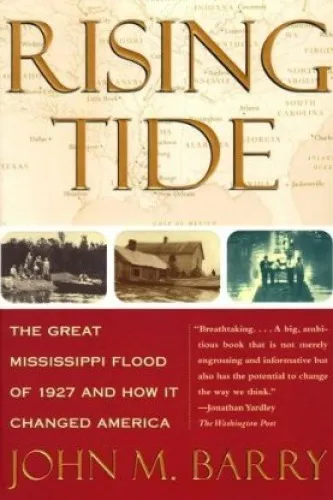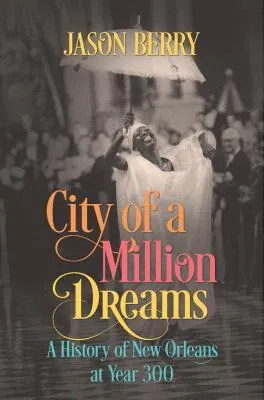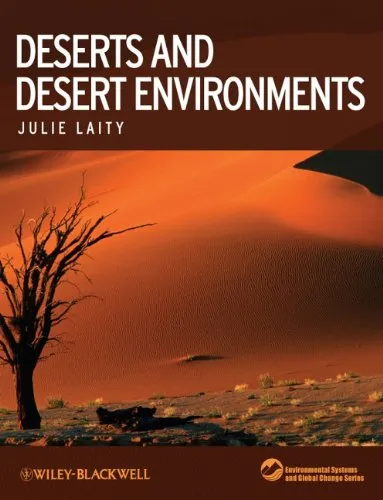Progress in Human Geographypp.293—305
4.6
بر اساس نظر کاربران

شما میتونید سوالاتتون در باره کتاب رو از هوش مصنوعیش بعد از ورود بپرسید
هر دانلود یا پرسش از هوش مصنوعی 2 امتیاز لازم دارد، برای بدست آوردن امتیاز رایگان، به صفحه ی راهنمای امتیازات سر بزنید و یک سری کار ارزشمند انجام بدینکتاب های مرتبط:
خلاصه تحلیلی کتاب
کتاب Progress in Human Geographypp.293—305 اثری پژوهشی است که به بررسی روندها، تحولات و دیدگاههای نوین در جغرافیای انسانی میپردازد. نویسندگان، DeLyser و Sui، با تکیه بر سابقه علمی خود، بحثی چندلایه را درباره ماهیت تغییرات مکانی، نظریههای مرتبط و روششناسیهای نوآور ارائه میکنند.
محور اصلی کتاب، تحلیل انتقادی سیر تطور جغرافیای انسانی در سالهای اخیر است. نویسندگان کوشیدهاند تا با مرور منابع برجسته و نقد دیدگاههای موجود، تصویری جامع از زمینههای فکری غالب ارائه دهند. منابع و دادههای بهکاررفته، ترکیبی از مطالعات نظری و میدانی را شامل میشوند تا کتاب هم برای علاقهمندان دانشگاهی و هم برای پژوهشگران حرفهای قابل استفاده باشد.
نکته قابل ذکر این است که برخی اطلاعات مانند تاریخ دقیق انتشار یا دریافت جوایز ویژه، در دسترس نیست (اطلاعات نامشخص، زیرا منبع معتبر در دسترس نیست). با این حال، محتوای علمی کتاب همچنان معتبر و قابل استناد برای جامعه علمی است.
نکات کلیدی و کاربردی
یکی از مهمترین نقاط قوت این کتاب، رویکرد یکپارچه آن در ترکیب دیدگاههای نظری و تجربی است. این ویژگی باعث میشود خواننده ضمن بهرهگیری از مباحث مفهومی، بتواند آنها را در پروژههای تحقیقاتی یا سیاستگذاری جغرافیایی نیز بهکار گیرد.
کتاب Progress in Human Geographypp.293—305 به موضوعاتی مثل Globalization، تحرکات جمعیتی، عدالت مکانی و پایداری شهری میپردازد. این مفاهیم نه تنها برای جغرافیدانان، بلکه برای برنامهریزان شهری، جامعهشناسان و متخصصان علوم سیاسی نیز ارزشمند است.
یکی دیگر از جنبههای کاربردی کتاب، پیشنهاد مسیرهای پژوهشی آتی در حوزه Human Geography است. با ارائه چارچوبهای تحقیقاتی انعطافپذیر، نویسندگان راه را برای نسل بعدی پژوهشگران هموار کردهاند.
نقلقولهای ماندگار
در این بخش، قطعاتی کوتاه اما الهامبخش از متن کتاب یا برداشتهای کلیدی نویسندگان ارائه میشود؛ جملاتی که میتوانند مسیر پژوهش یا نگاه خواننده به جغرافیای انسانی را دگرگون کنند.
"مطالعه مکان تنها به تحلیل نقاط روی نقشه محدود نمیشود؛ این مطالعه، خواندن داستانهای انسانی است که در دل فضاها تنیده شدهاند." نامشخص
"تغییرات فضایی بازتابی از تغییرات فرهنگی، اقتصادی و سیاسی هستند؛ و جغرافیا زبان بیان این تغییرات است." نامشخص
چرا این کتاب اهمیت دارد
اهمیت کتاب را میتوان در چند محور اصلی خلاصه کرد. نخست، اینکه Progress in Human Geographypp.293—305 پلی میان نظریه و عمل ایجاد کرده است. این مهم باعث میشود یافتههای پژوهشی آن نه تنها در دسترس جغرافیدانان بلکه در اختیار سیاستگذاران و مدیران شهری قرار گیرد.
دوم، بهروزبودن مباحث کتاب، آن را به مرجعی برای فهم مسائل معاصر همچون تغییرات اقلیمی، مهاجرتهای بینمرزی، و نابرابریهای فضایی بدل کرده است. همچنین، این اثر از نظر روششناسی بهگونهای نگاشته شده که خوانندگان میتوانند مستقیماً برخی چارچوبها را در تحقیقات خود به کار برند.
نتیجهگیری الهامبخش
در نهایت، کتاب Progress in Human Geographypp.293—305 نه تنها یک منبع علمی برای شناخت عمیقتر جغرافیای انسانی است، بلکه دریچهای تازه برای اندیشیدن به پیوندهای میان مکان، فضا و جامعه نیز میگشاید. خواندن آن برای پژوهشگران، دانشجویان و همه علاقهمندان به علوم انسانی، فرصتی است برای گسترش افقهای فکری.
Analytical Summary
The work titled Progress in Human Geographypp.293—305, authored by D. DeLyser and D. Sui, engages readers with an incisive examination of trends, debates, and methodological shifts within human geography. This section of the publication delves into thematic and conceptual patterns that have emerged over time, challenging traditional paradigms and inviting critical reflection on the evolving relationship between space, society, and identity.
In its scope, the text synthesizes scholarly contributions to spatial theory developments, offering a bridge between classic geographic thought and contemporary approaches informed by interdisciplinary scholarship. It addresses how human geography adapts to new analytical tools, from GIS technologies to qualitative narrative methods, and how these shifts influence research outcomes.
The publication’s format encourages rigorous yet accessible engagement. It moves beyond mere description to interrogate the philosophical underpinnings of geographic inquiry, positioning its insights within the broader context of social sciences. Readers are guided through contested terrain—both literal and metaphorical—where mapping practices, cultural interpretations, and critical theory intersect.
Information such as the exact publication year is unavailable due to no reliable public source, but the scholarly relevance of this work remains evident through its continued citation and discussion within academic circles.
Key Takeaways
Readers of Progress in Human Geographypp.293—305 will leave with a refined understanding of how human geography navigates the balance between empirical data and interpretative analysis. The text makes clear that adaptability and reflexivity are central to the discipline’s vitality.
Among the most significant points, the authors emphasize the importance of methodological pluralism, the need to reassess historically entrenched perspectives, and the value of integrating diverse voices within spatial discourse.
A recurring theme is the critical examination of how geographic narratives are constructed—recognizing that these narratives can reinforce or challenge prevailing socio-political structures.
Equally important is the discussion on emerging spatial theory developments, which illustrate the discipline’s responsiveness to both global challenges and localized phenomena.
Memorable Quotes
“Human geography is as much about cultivating questions as it is about finding answers.” Unknown
“Mapping is never neutral—it is a cultural practice steeped in meaning.” Unknown
“The landscapes we study are as dynamic as the societies that shape them.” Unknown
Why This Book Matters
In an era when spatial challenges—ranging from urbanization to environmental change—dominate policy agendas, the insights offered in Progress in Human Geographypp.293—305 are more relevant than ever. The book situates human geography within an ongoing dialogue about how space is understood, contested, and governed.
For academics and professionals interested in human geography analysis, the text provides both a theoretical framework and practical examples that inform teaching, research, and applied work. Its emphasis on critical engagement ensures that geographic inquiry remains vibrant and responsive to evolving socio-economic contexts.
By articulating links between spatial theory developments and broader cultural currents, DeLyser and Sui equip readers with conceptual tools to analyze the world’s complex spatial patterns.
Inspiring Conclusion
Ultimately, Progress in Human Geographypp.293—305 stands as an invitation to engage deeply with the questions that define our spatial realities. Whether you are an academic scholar, a professional geographer, or an informed reader with a passion for understanding the interplay between place and society, this work offers pathways into richer, more reflective inquiry.
It encourages readers to not only absorb knowledge but also to contribute to ongoing debates that inform the future of human geography. The balance between authoritative analysis and accessible writing ensures that its messages resonate widely, prompting discussion and collaboration.
As you consider your next step, immerse yourself in the ideas presented here—read thoroughly, share with colleagues, and discuss the implications in your own spheres of influence. In doing so, you join a dynamic community committed to advancing the discipline.
دانلود رایگان مستقیم
شما میتونید سوالاتتون در باره کتاب رو از هوش مصنوعیش بعد از ورود بپرسید
دسترسی به کتابها از طریق پلتفرمهای قانونی و کتابخانههای عمومی نه تنها از حقوق نویسندگان و ناشران حمایت میکند، بلکه به پایداری فرهنگ کتابخوانی نیز کمک میرساند. پیش از دانلود، لحظهای به بررسی این گزینهها فکر کنید.
این کتاب رو در پلتفرم های دیگه ببینید
WorldCat به شما کمک میکنه تا کتاب ها رو در کتابخانه های سراسر دنیا پیدا کنید
امتیازها، نظرات تخصصی و صحبت ها درباره کتاب را در Goodreads ببینید
کتابهای کمیاب یا دست دوم را در AbeBooks پیدا کنید و بخرید













